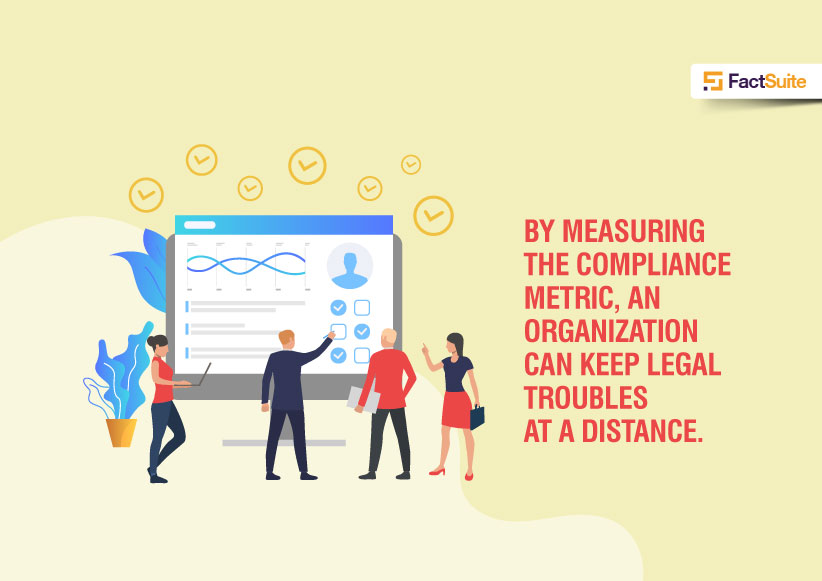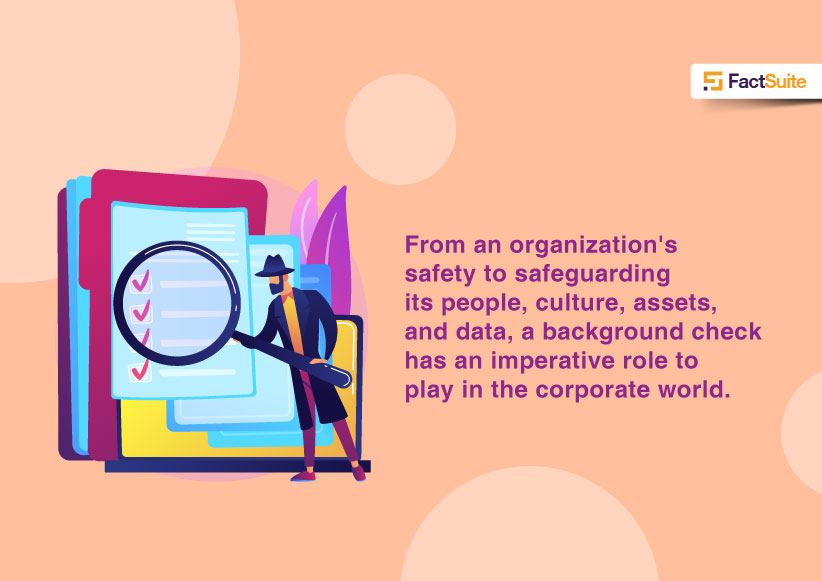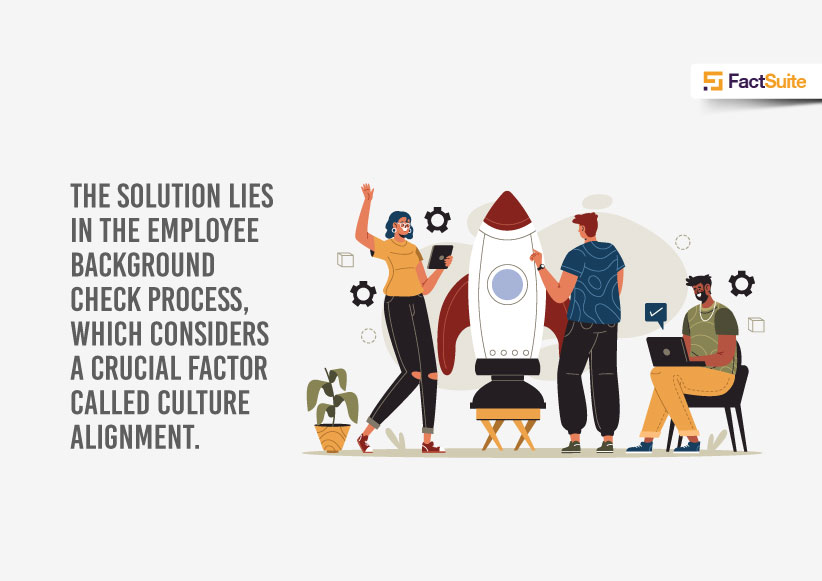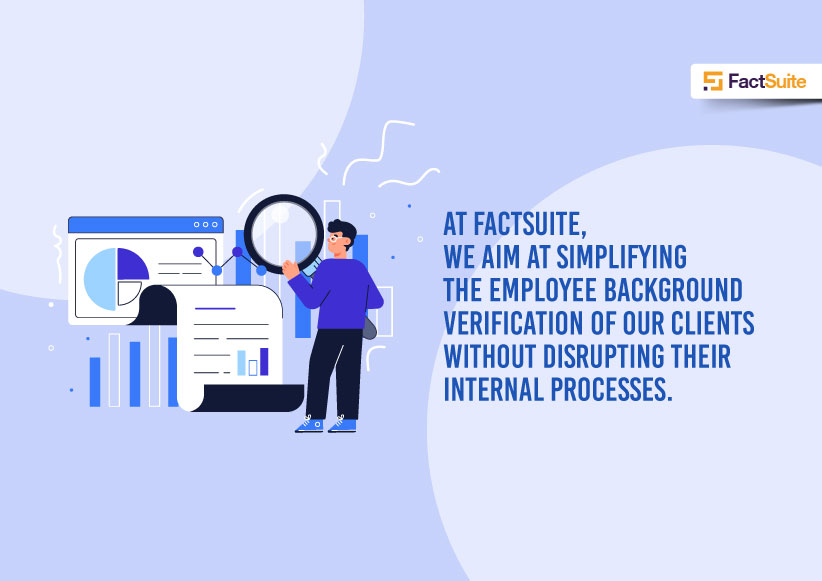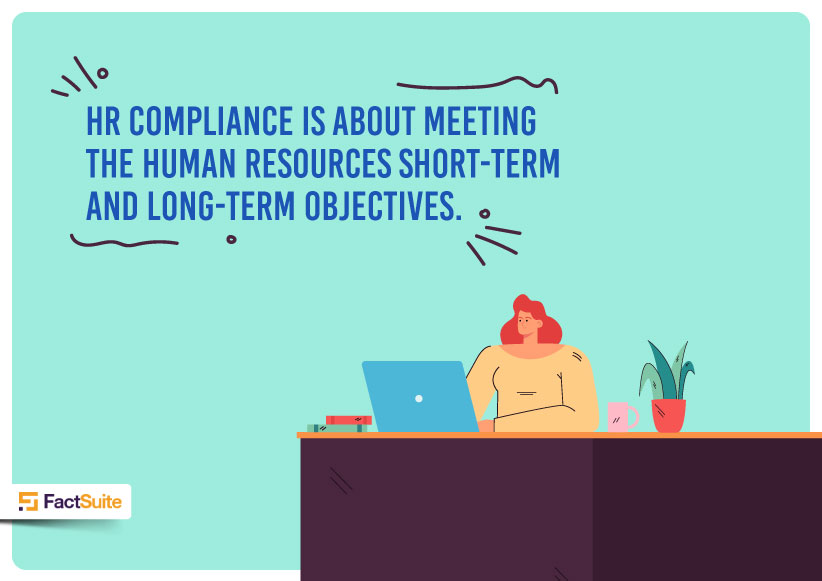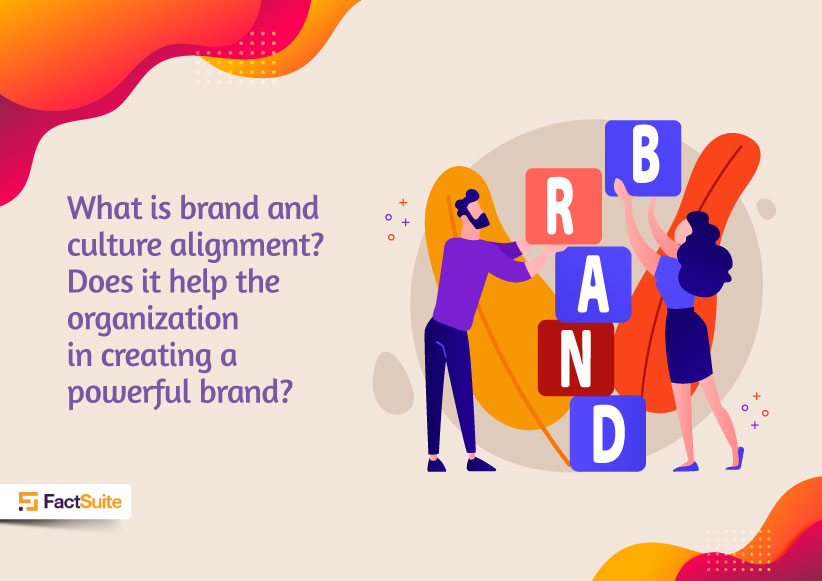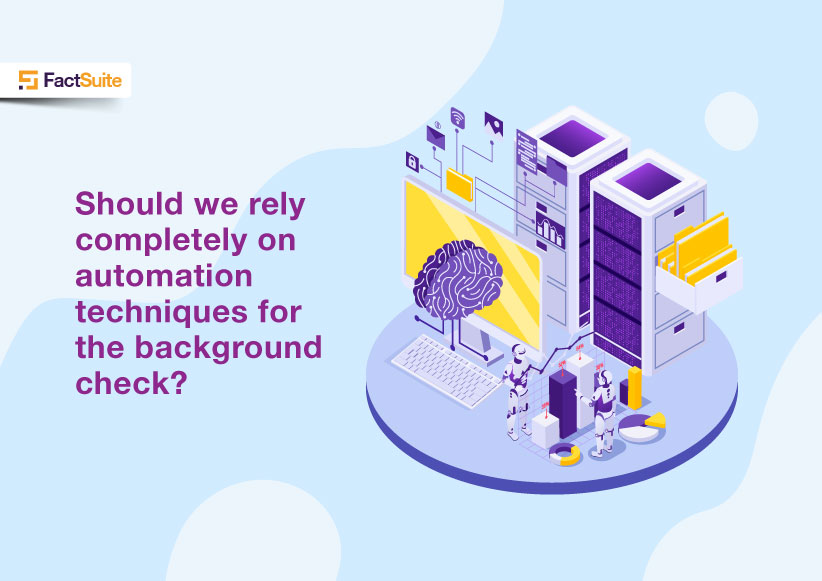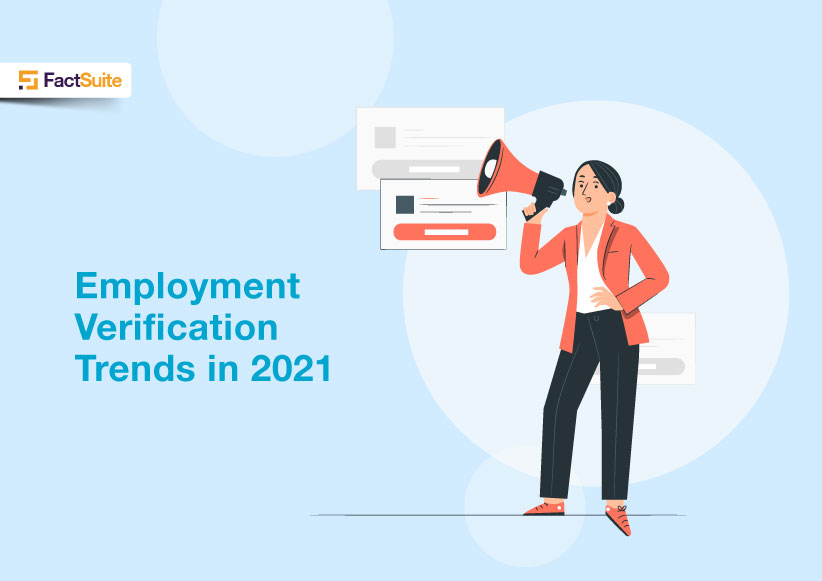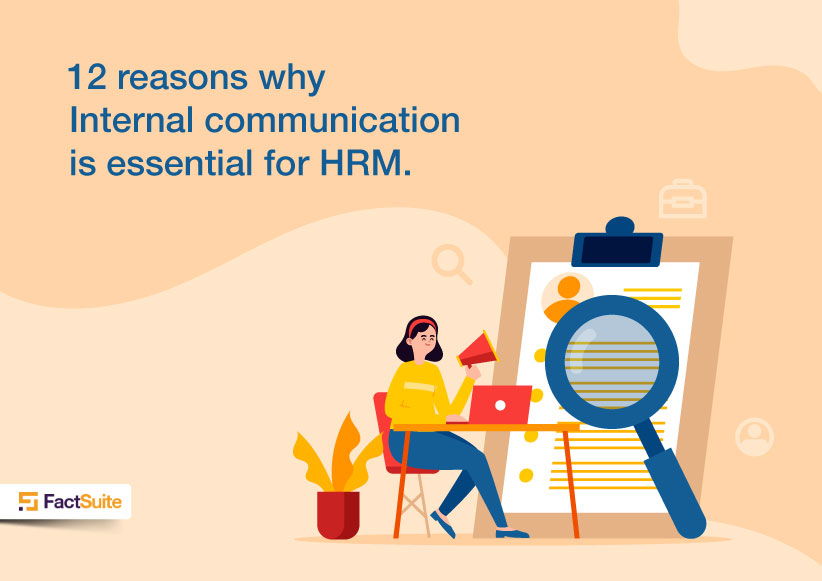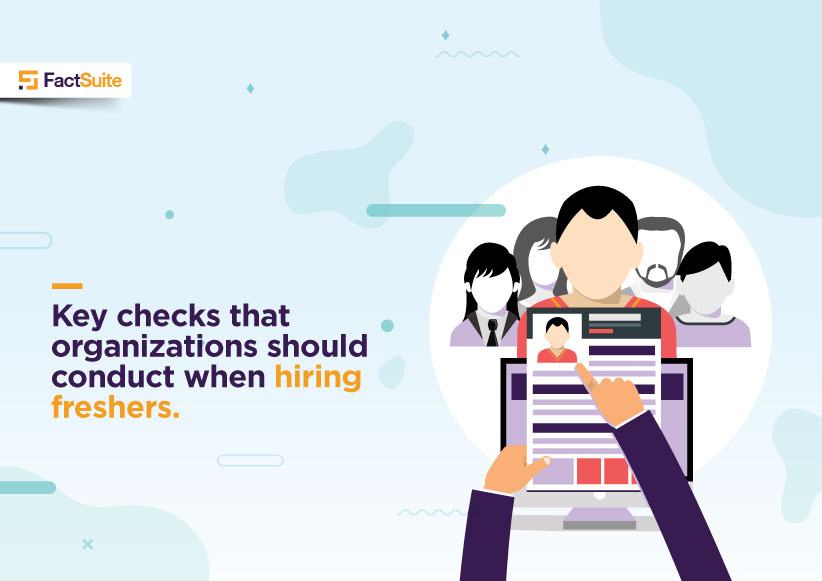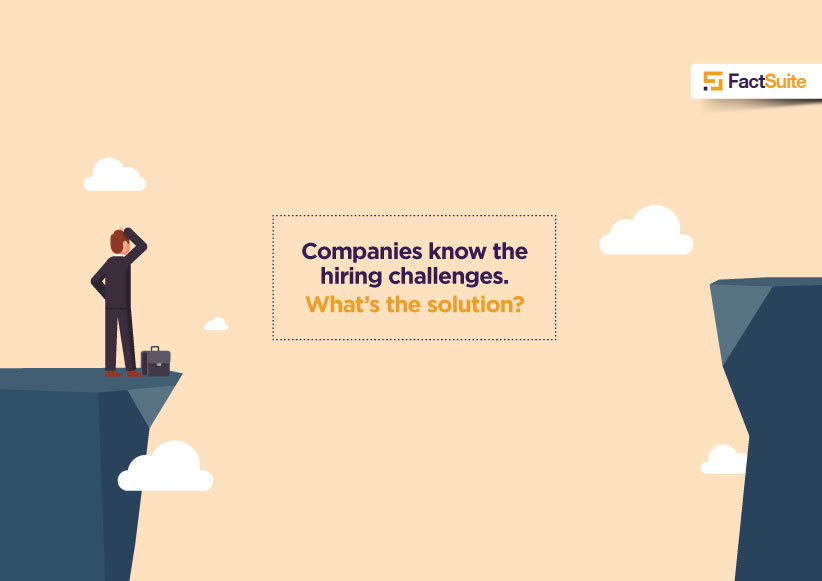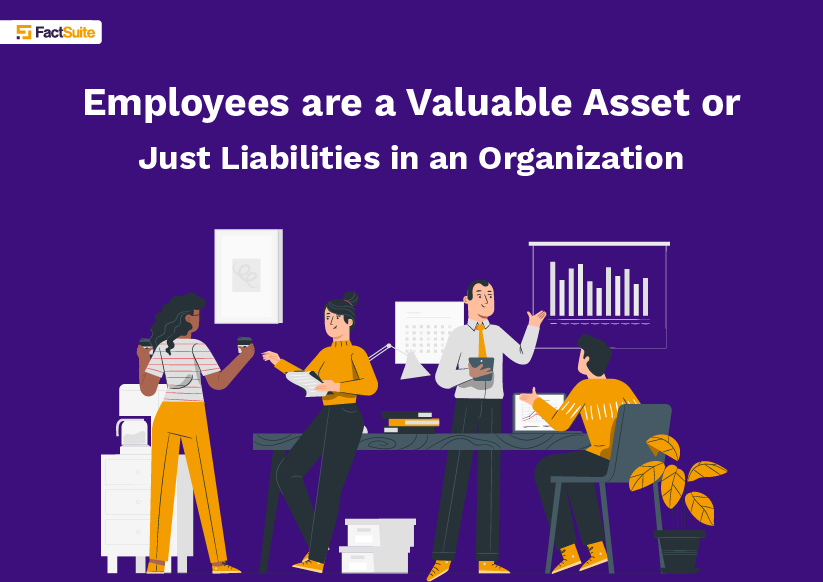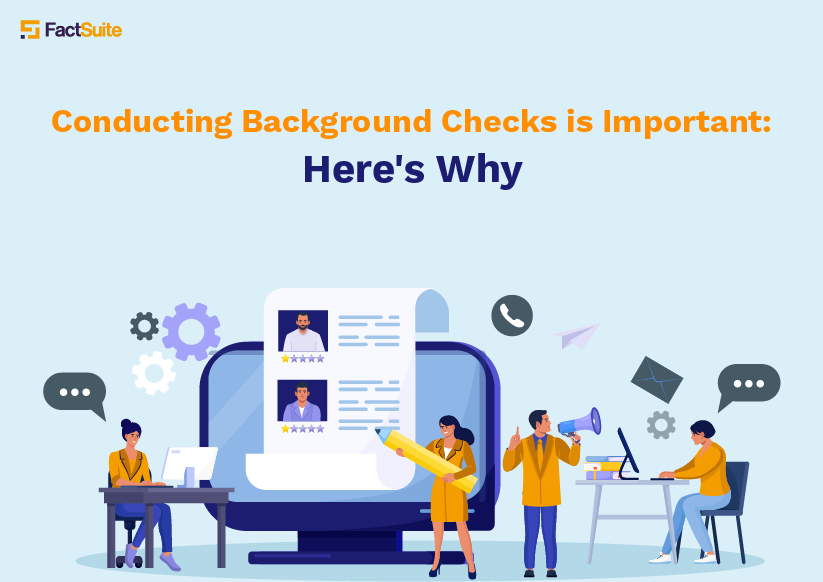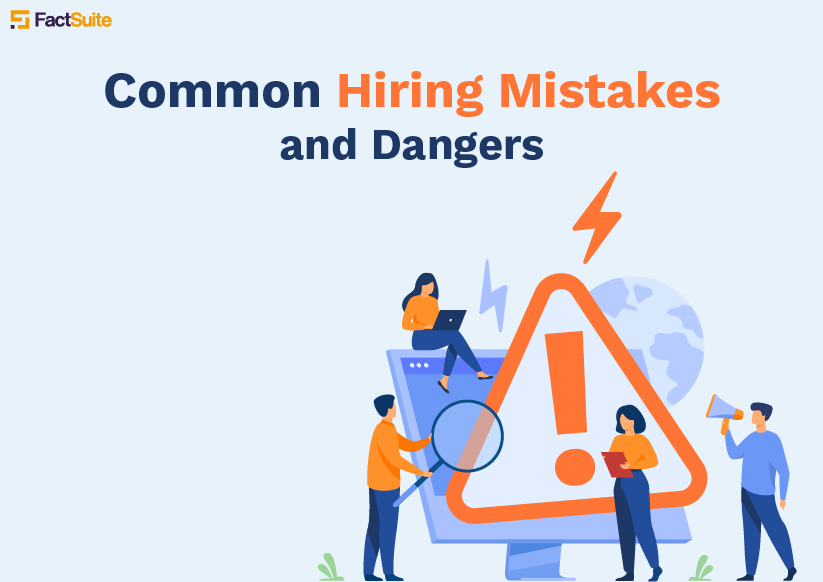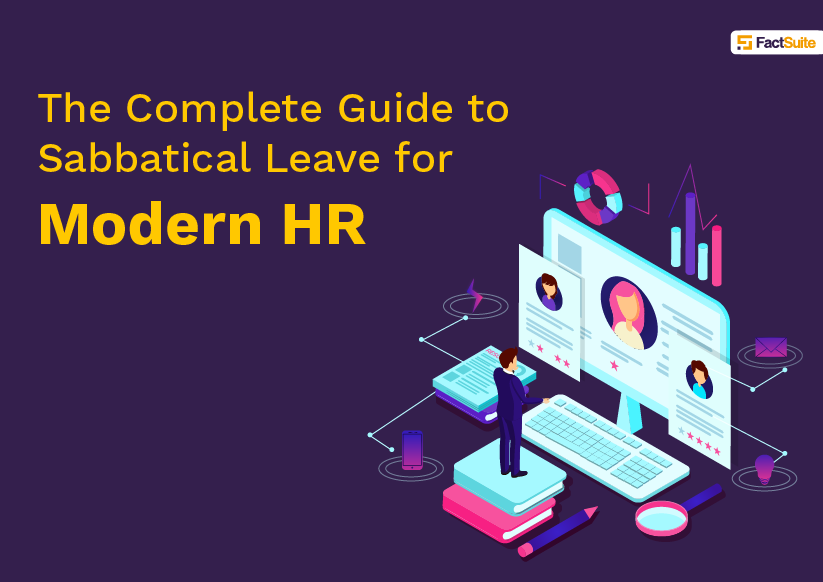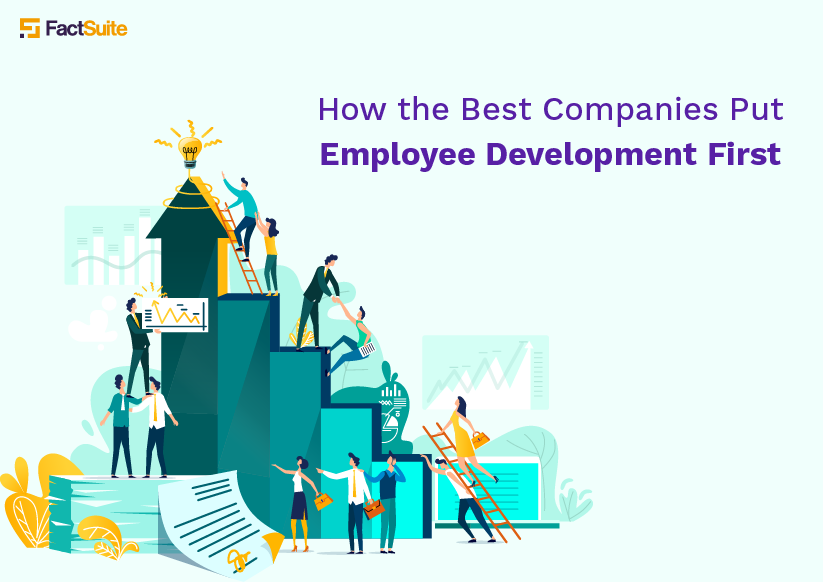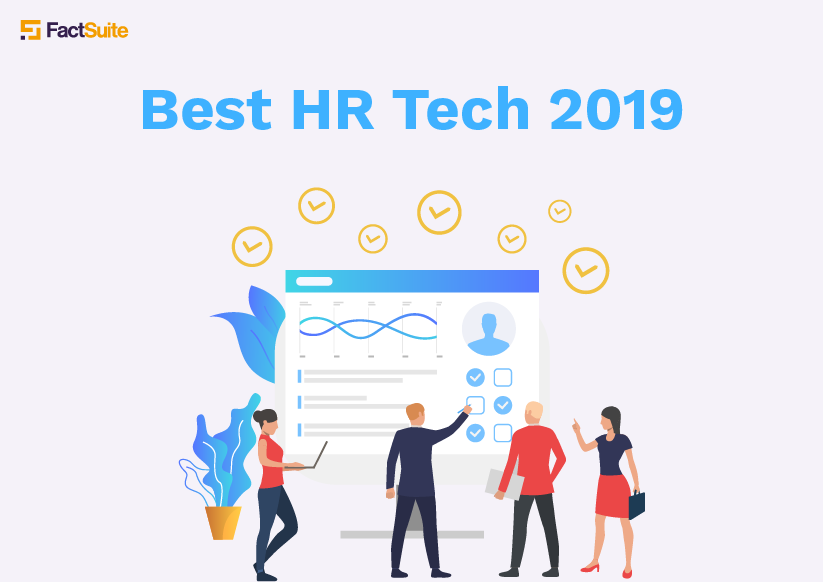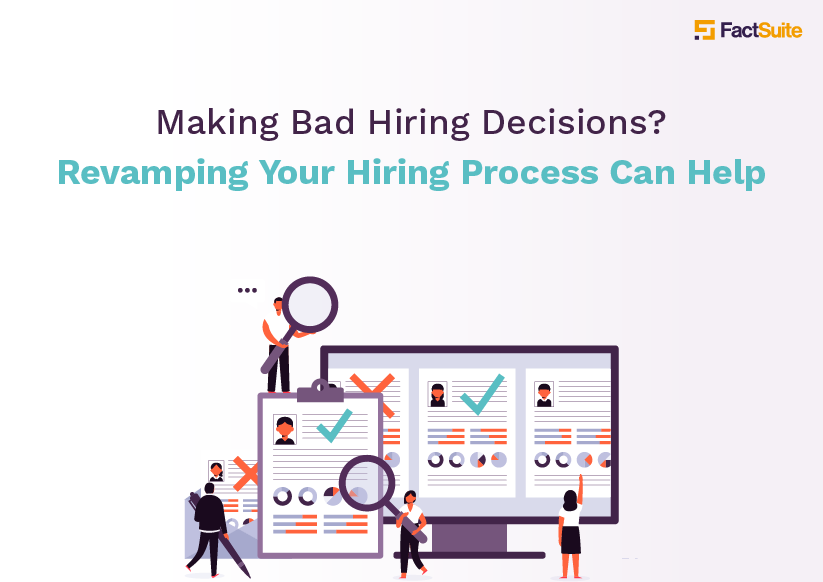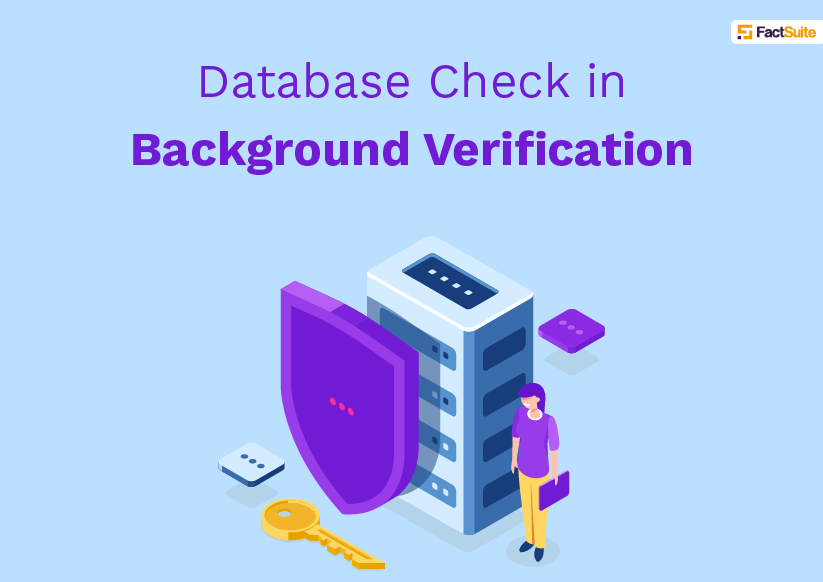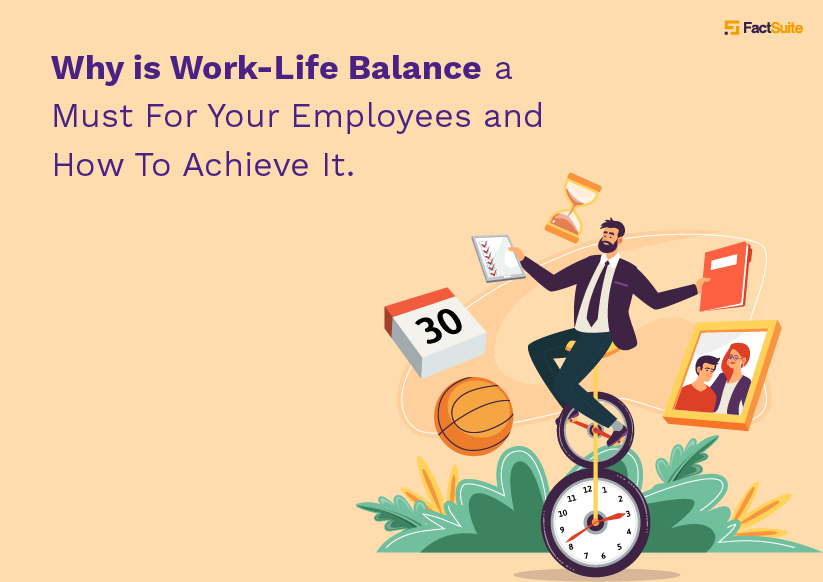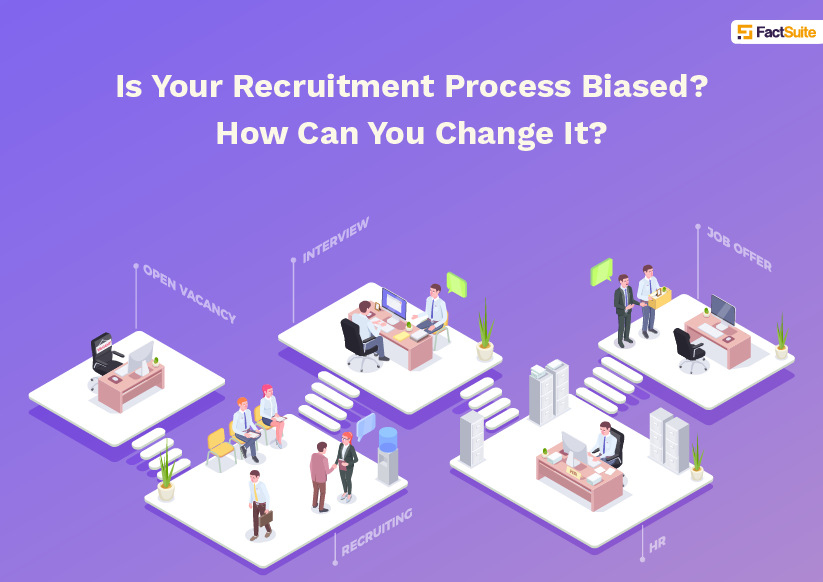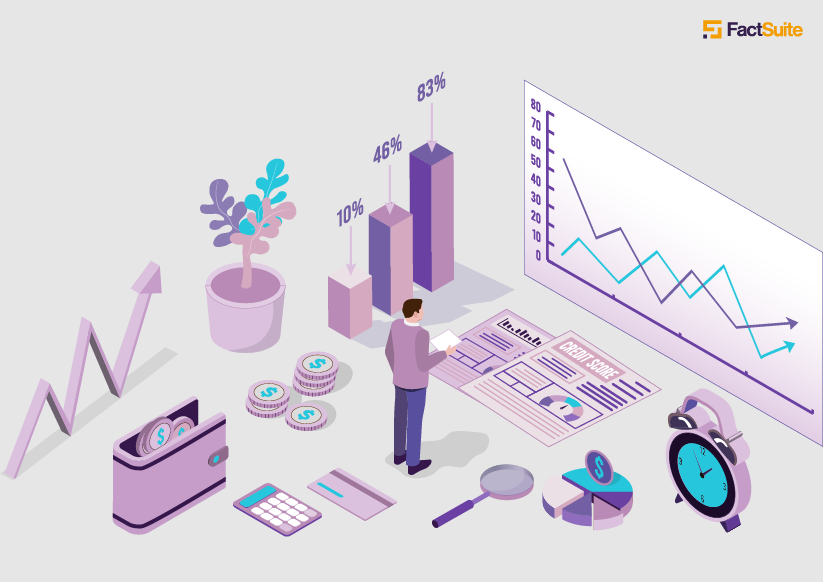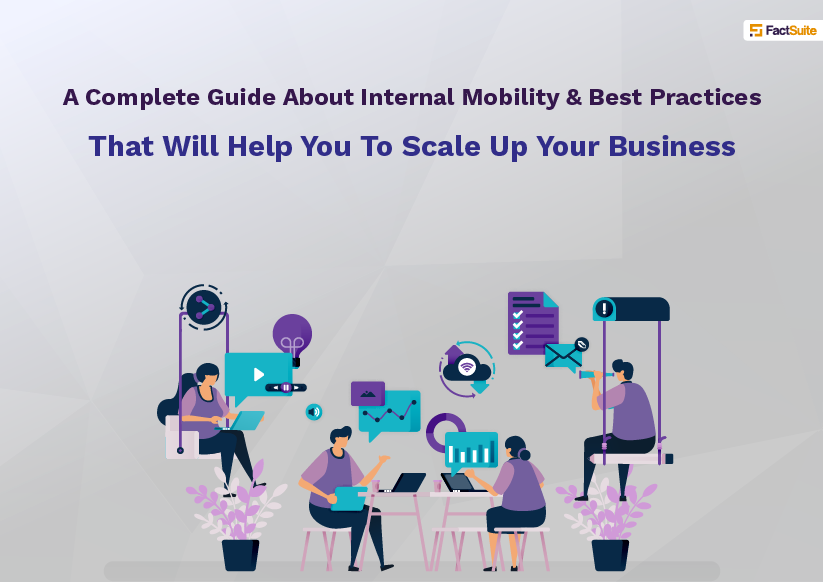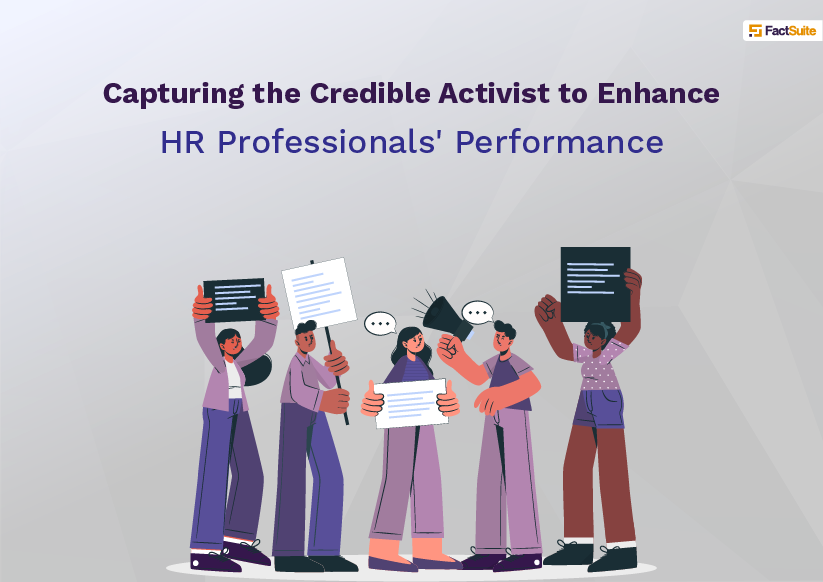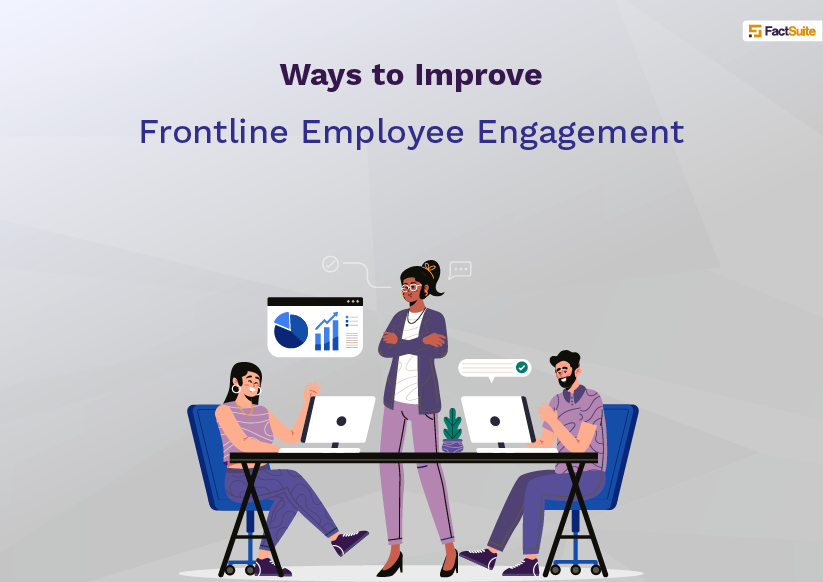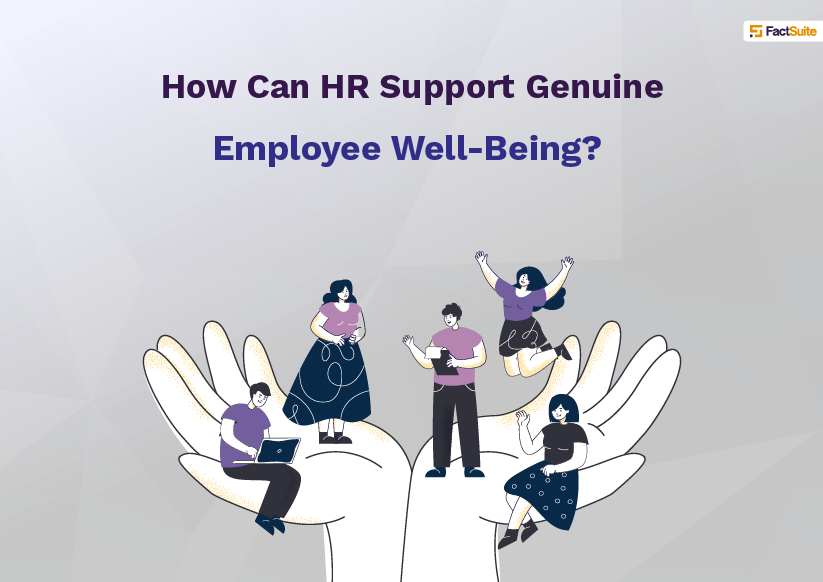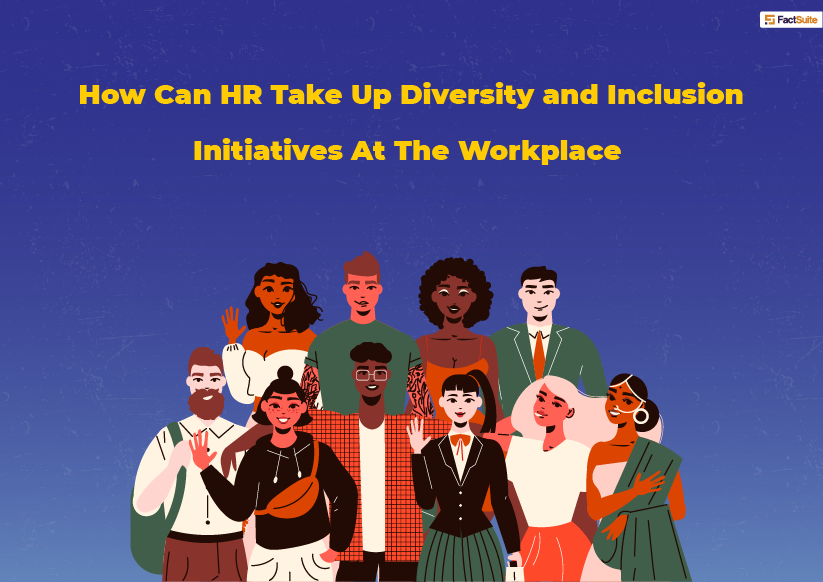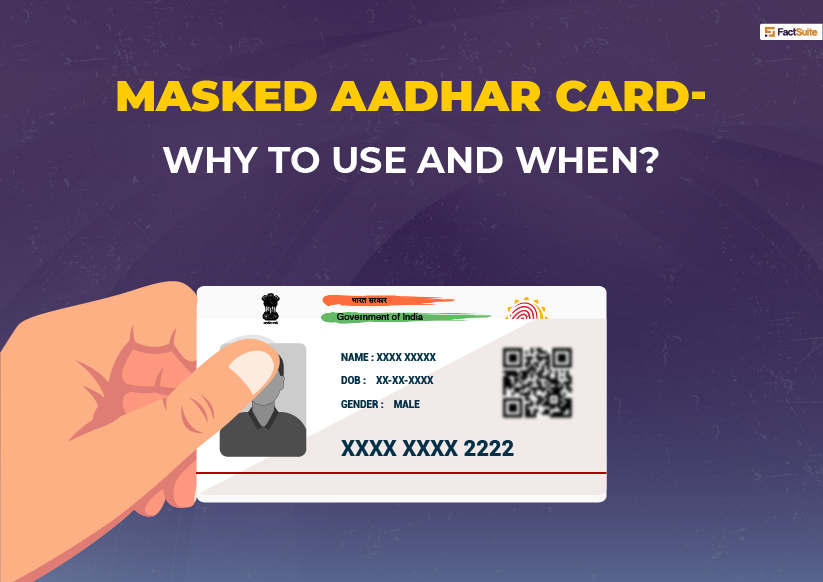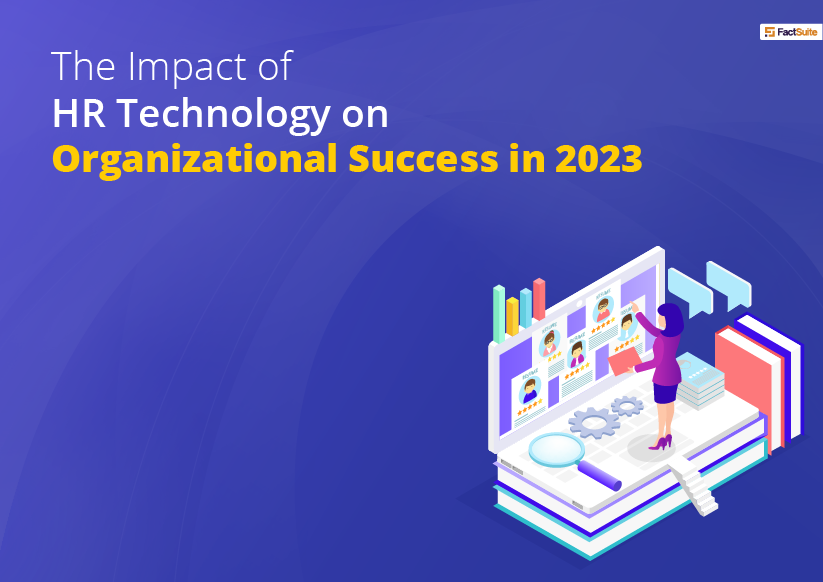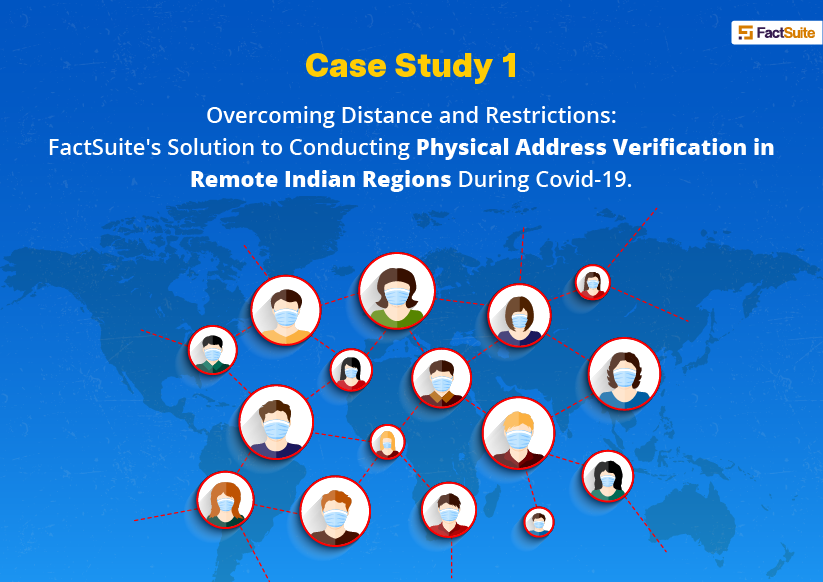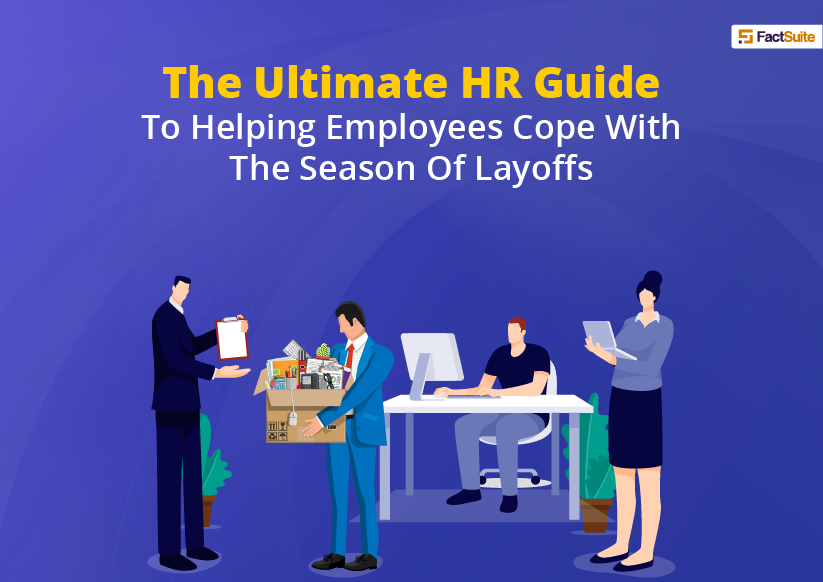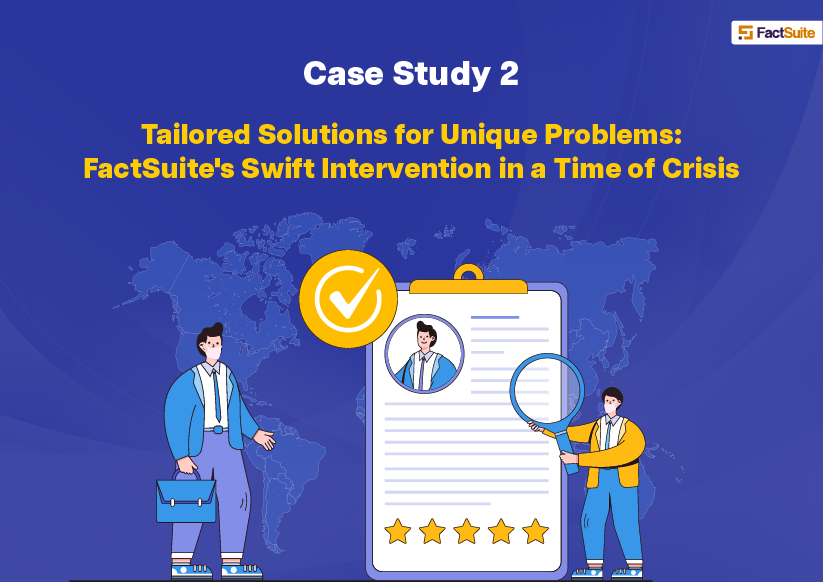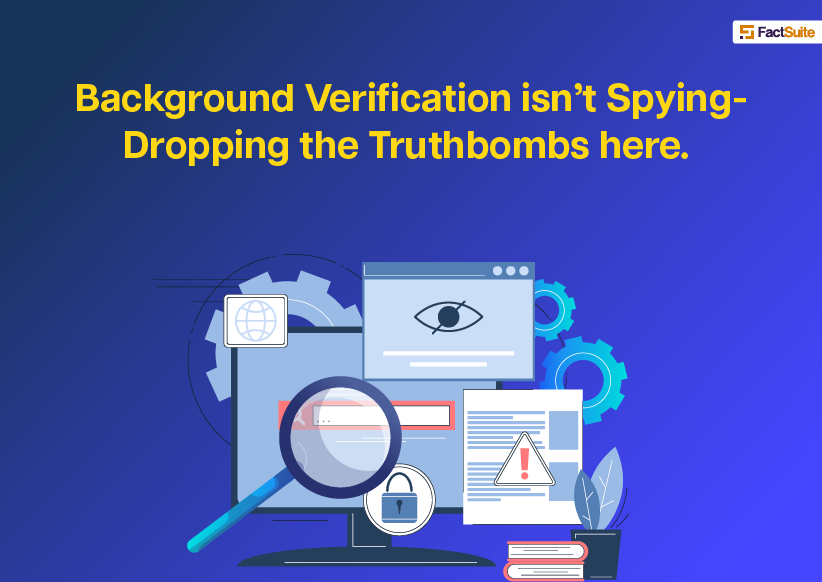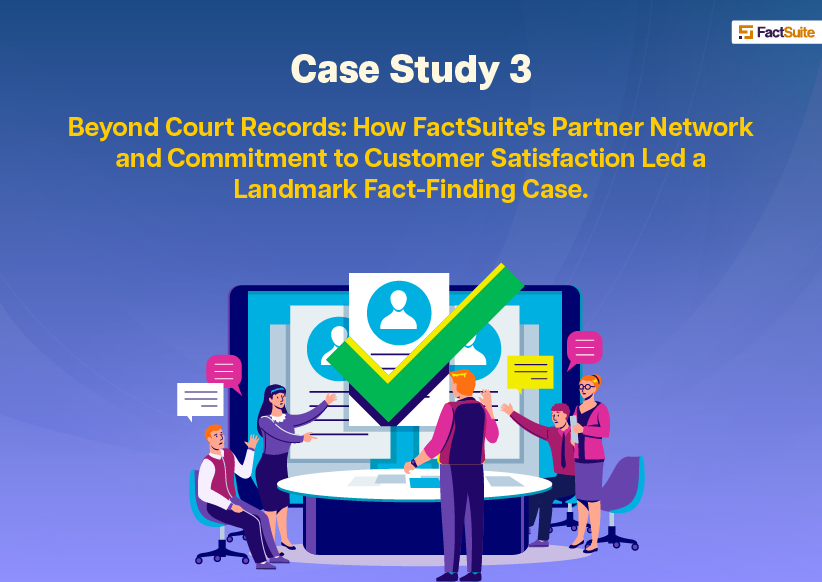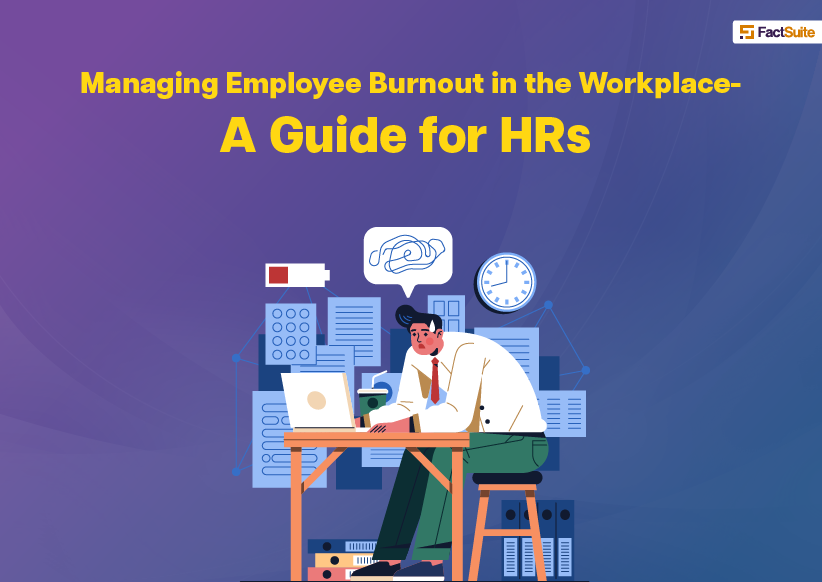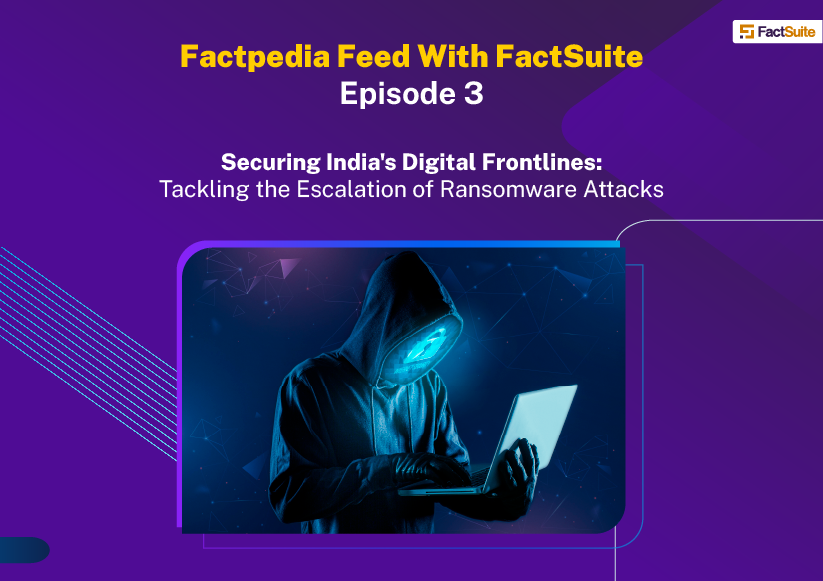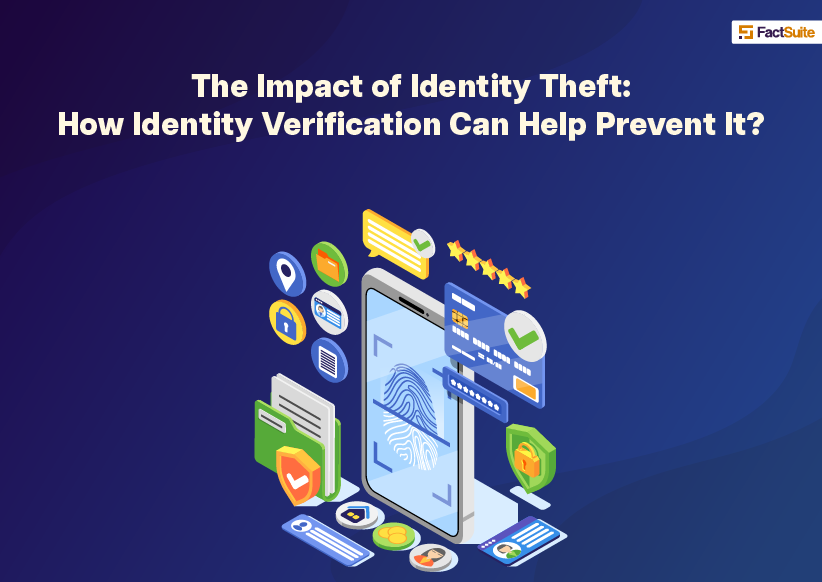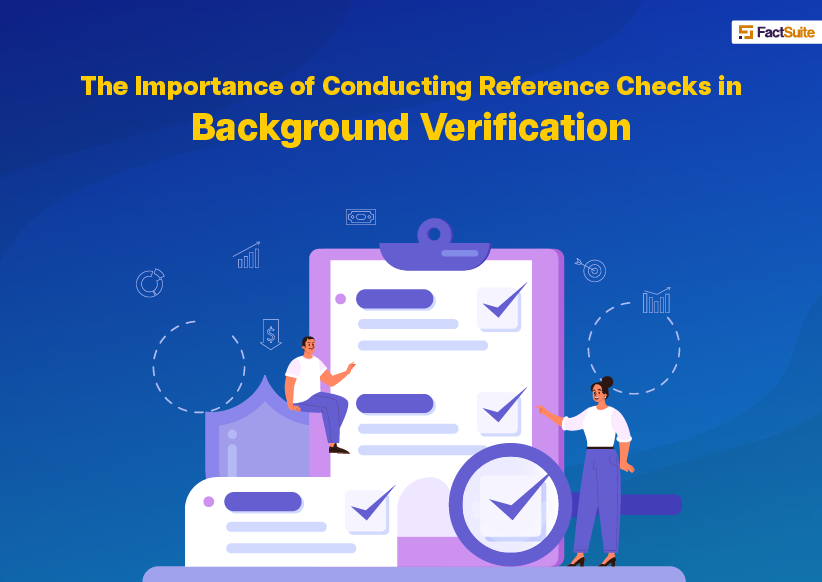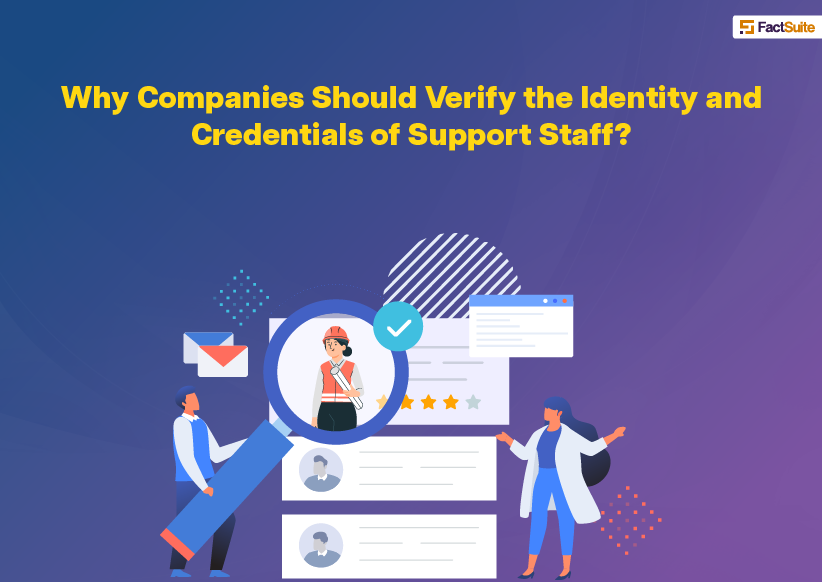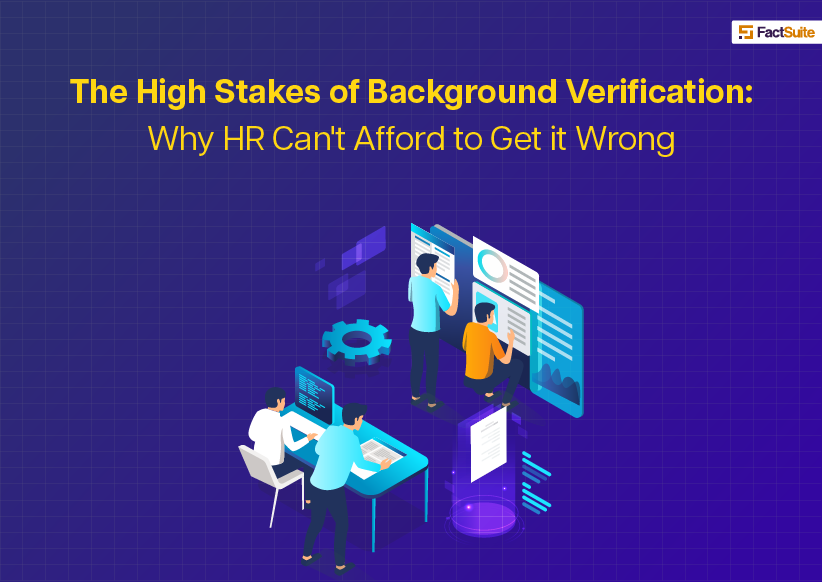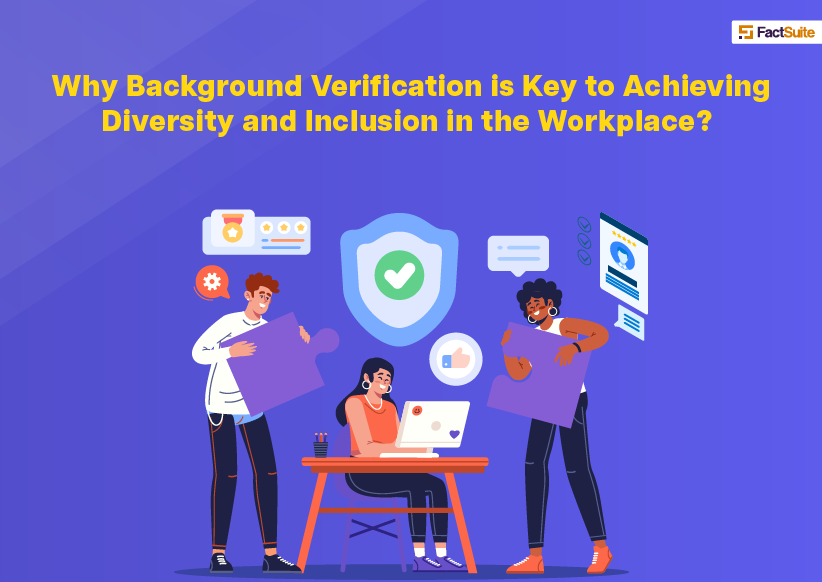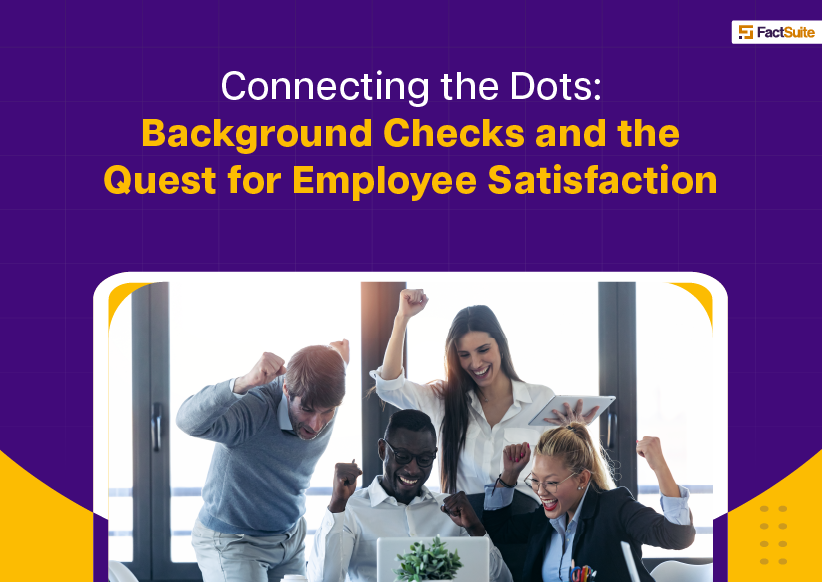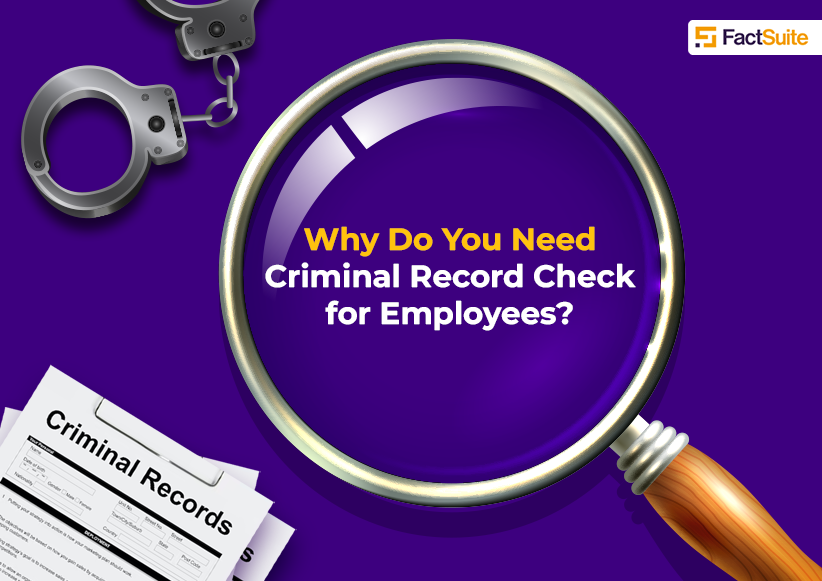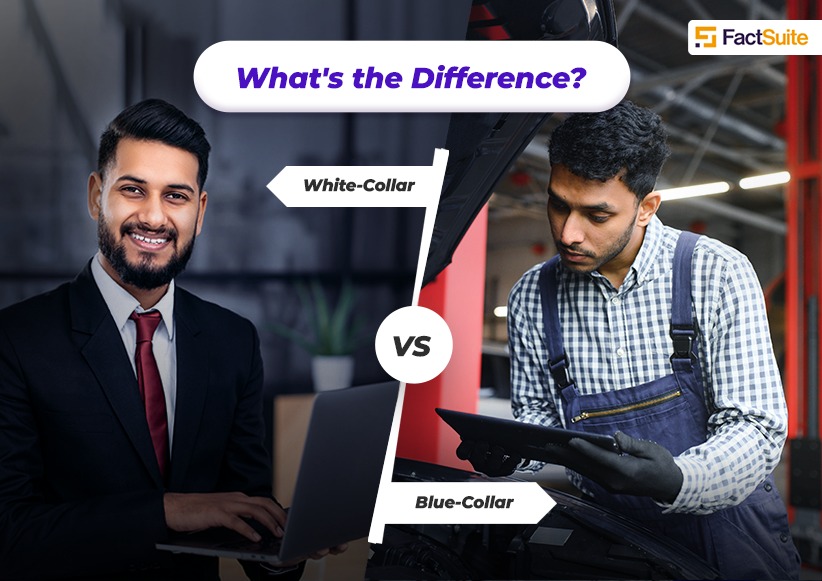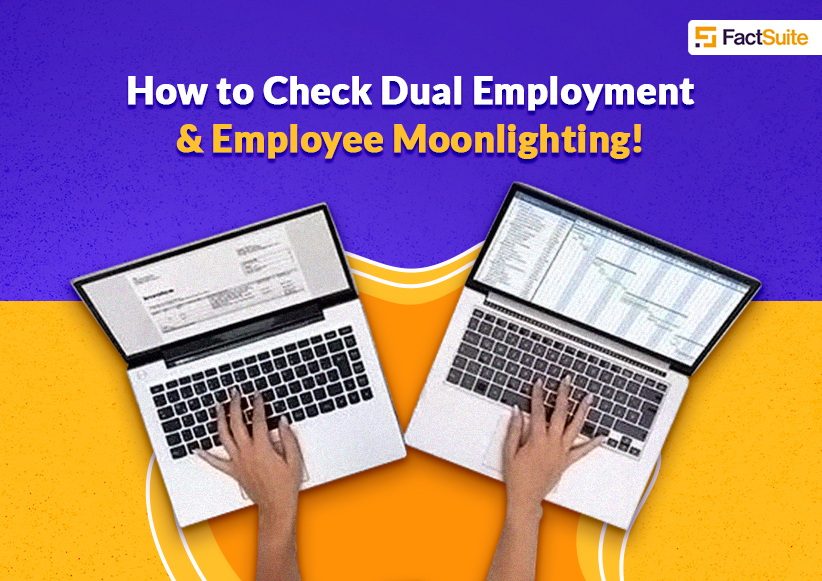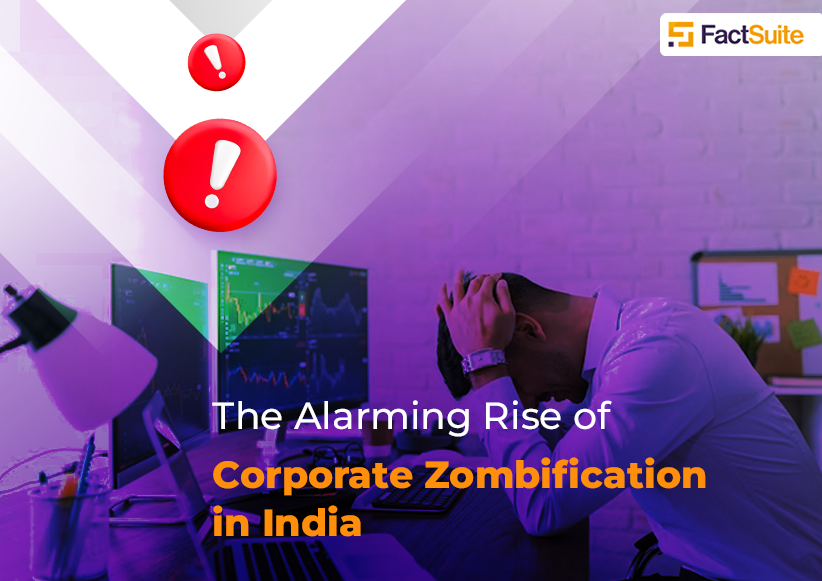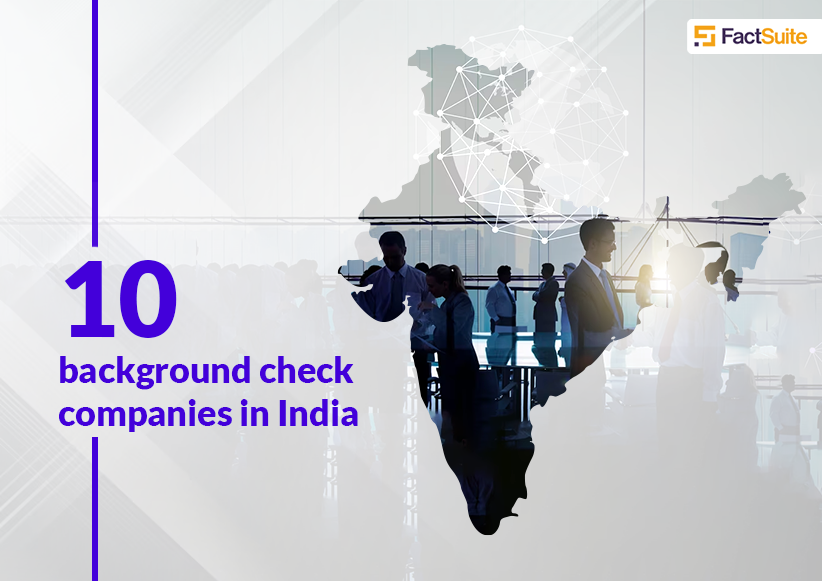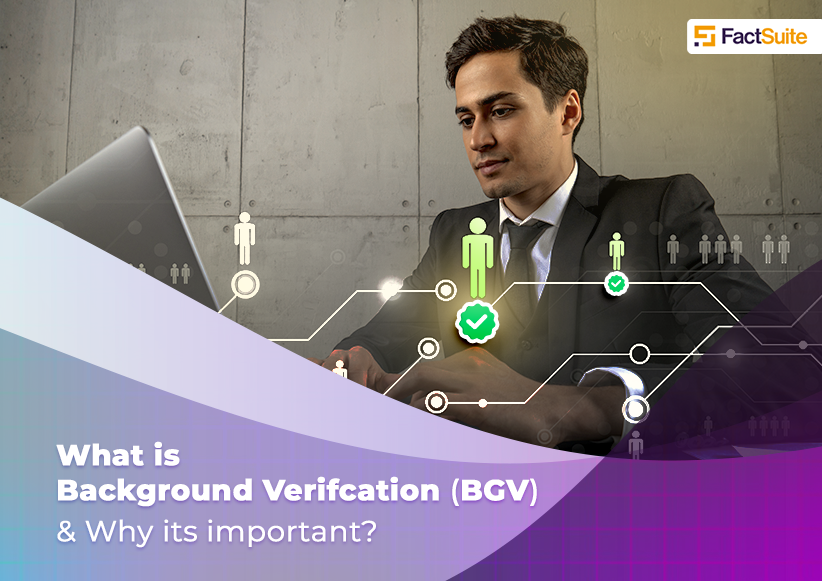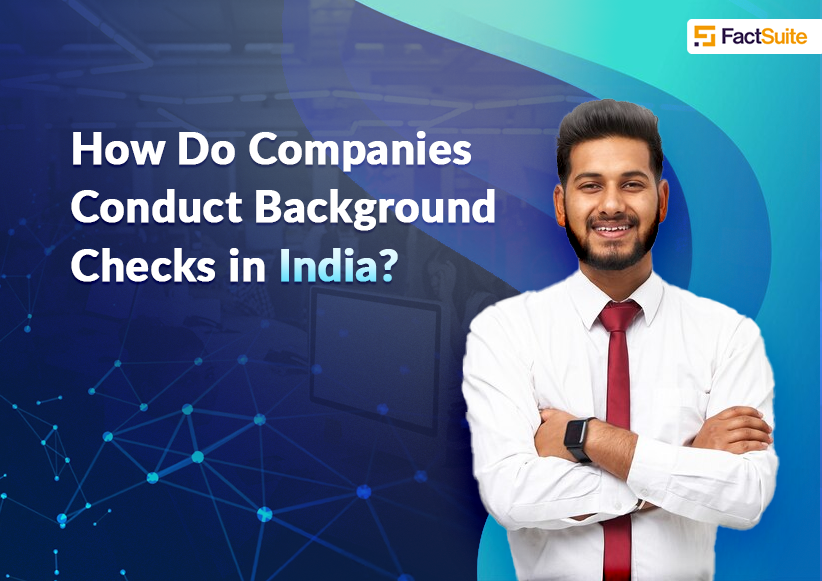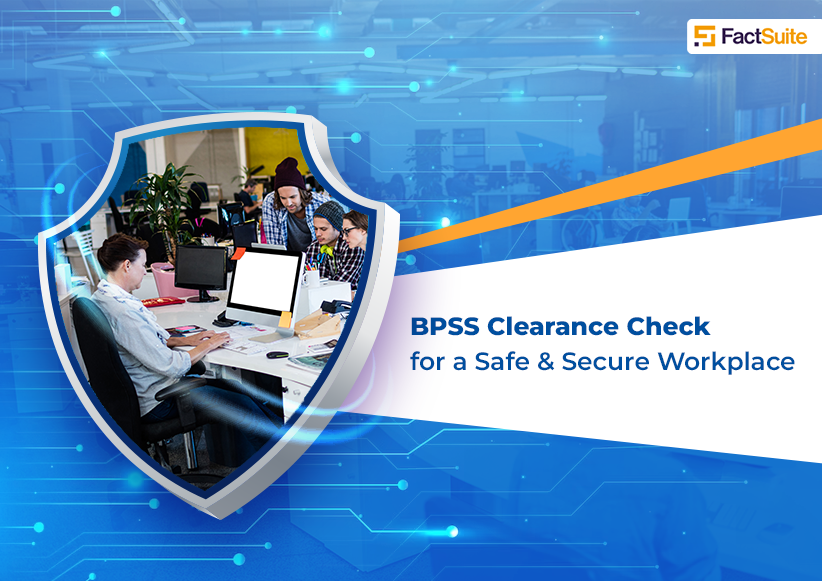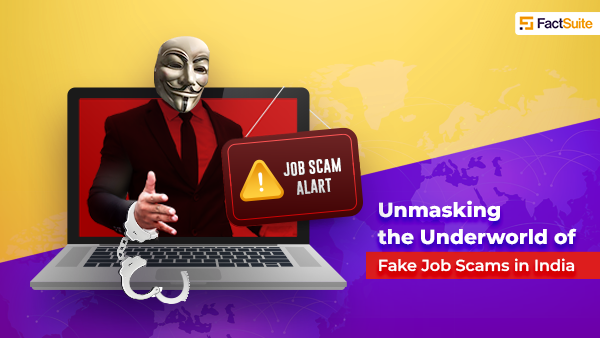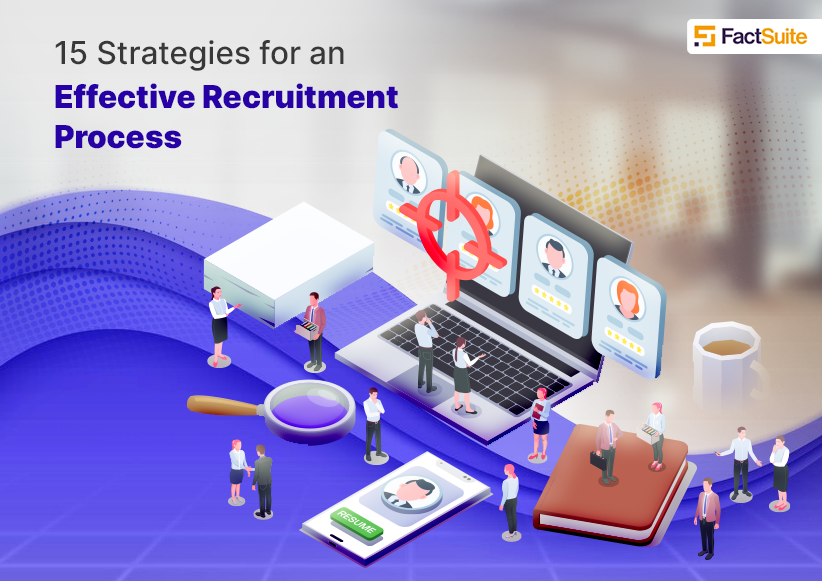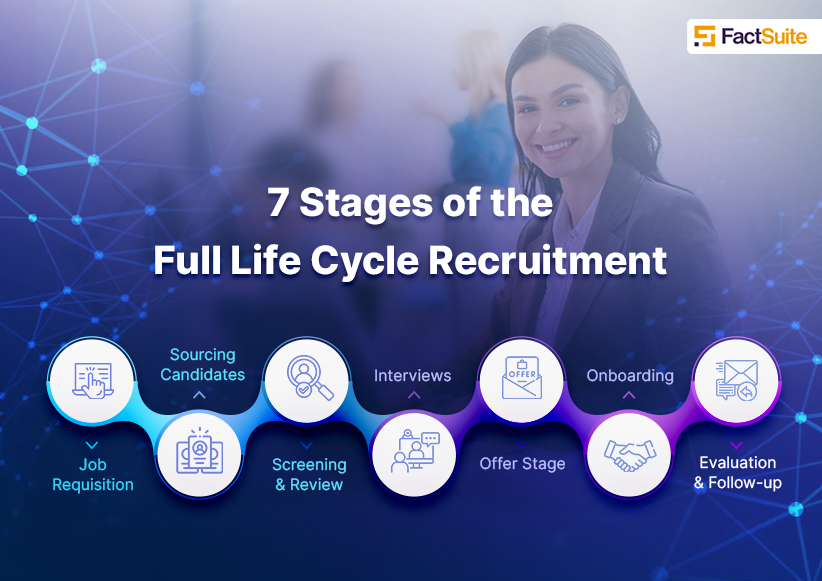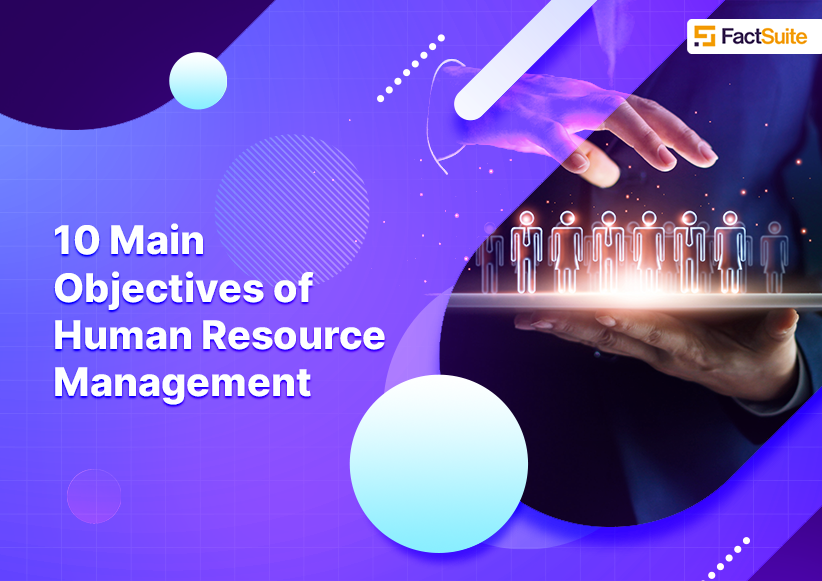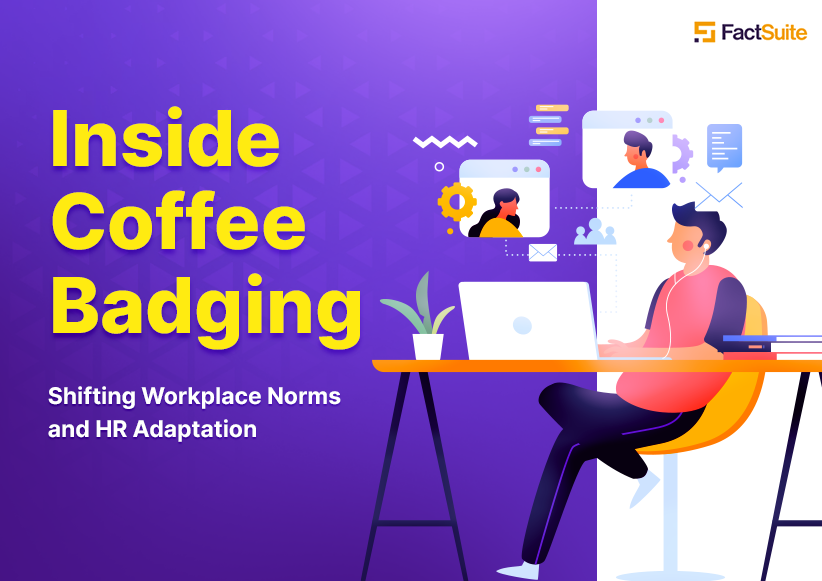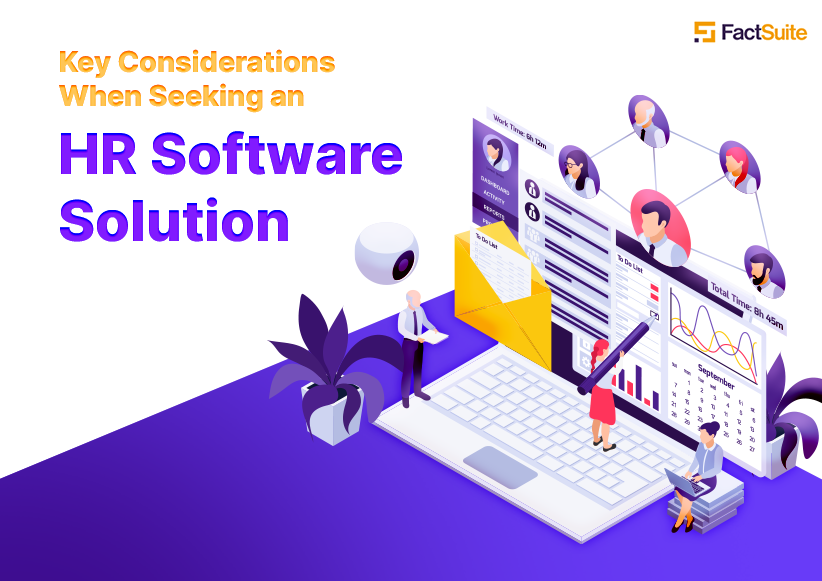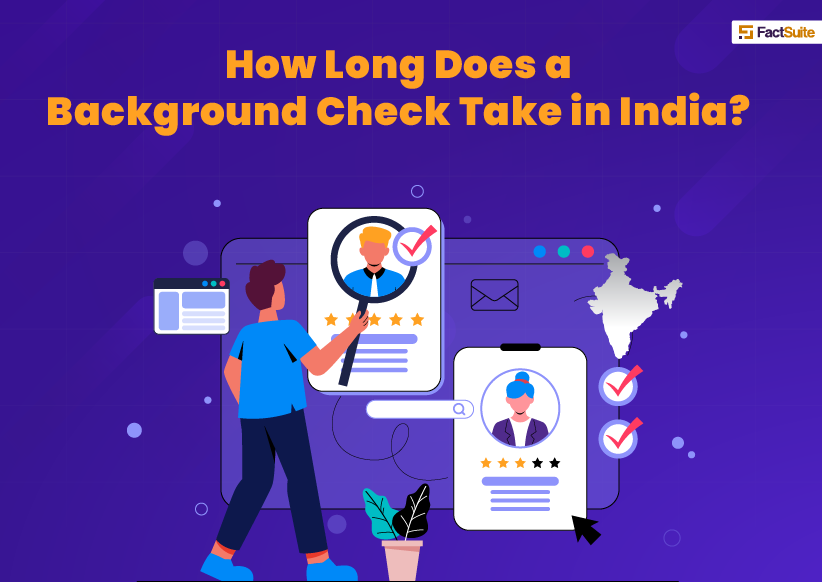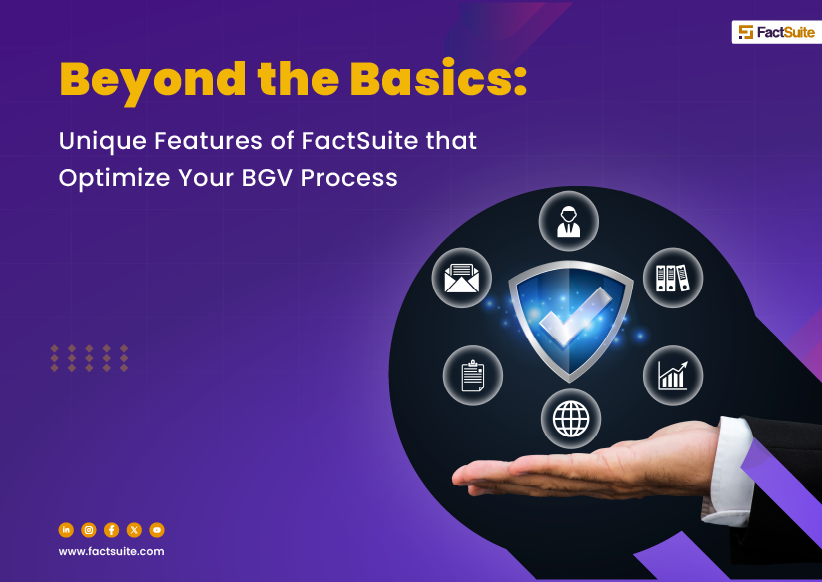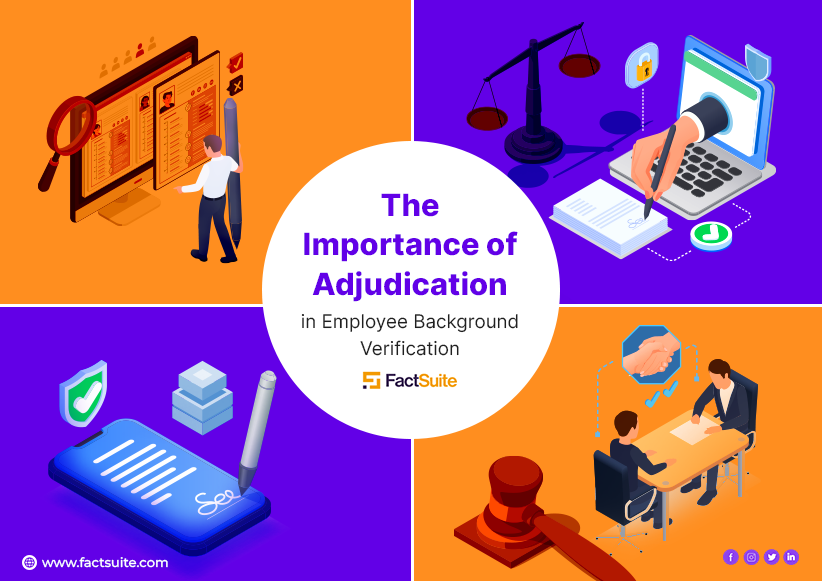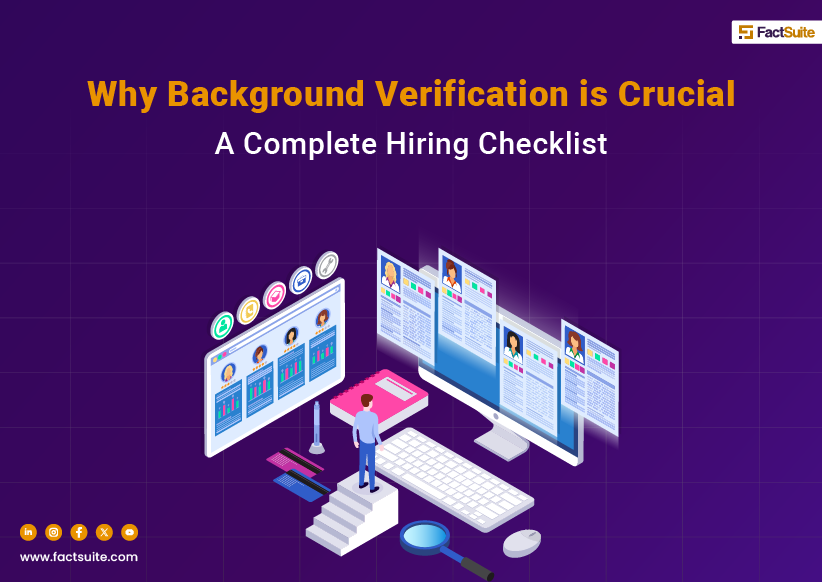Employee Background Verification: What Indian Employers Need to Know?
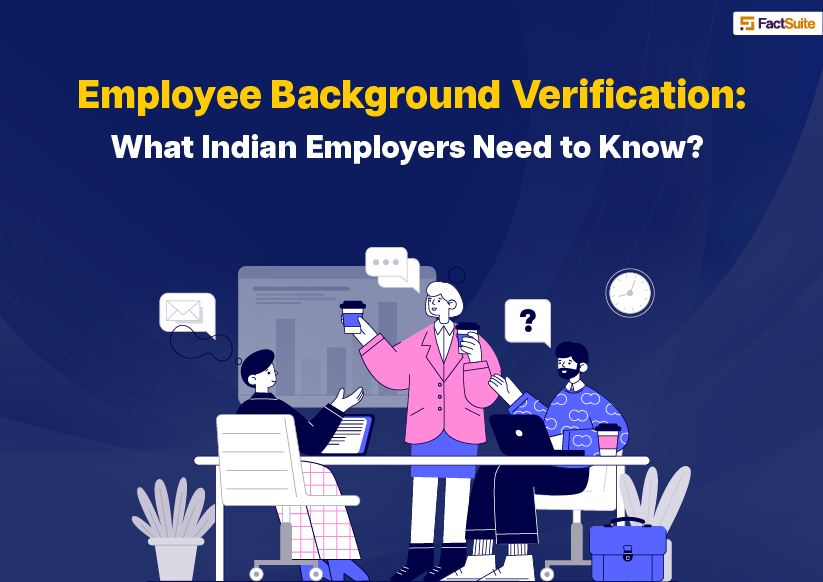
In the Indian context, employee background verification has gained significant importance as an integral part of the hiring process for many companies. This is due to the increasing instances of fraudulent activities and falsified credentials. Employers in India are now taking proactive measures, such as implementing stricter background screening regulations, including termination of employees with resume discrepancies and intervention in cases of candidate fraud, to verify the authenticity of a candidate's background information before extending a job offer. Several organizations have been observed to take steps to address instances of false resumes, showcasing their dedication to upholding the integrity of their hiring processes, as evidenced in various news articles that you might have come across recently.
The Employee Background Verification process is typically conducted by employers to ensure the accuracy and authenticity of the information provided by the candidate during the hiring process. Background checks are typically conducted after a candidate has successfully passed all rounds of interviews and is being considered for employment. The duration of the background verification process usually takes between 3-10 days, although it can be extended for senior-level hires if the company requires a more in-depth investigation.
In this article, we will discuss everything that Indian employers need to know about background checks in India, including its importance, legal implications, and how to conduct one.
Table of Contents
- Introduction
- Why are Background Checks Important for Employers?
- Legal Implications of Background Checks in India
- What to Include in a Background Check?
- Identity Check
- Address Check
- Education Check
- Employment Check
- Reference Check
- Global Database Check
- Drug Test
- Court/Criminal Record Check
- Credit History Check
- Health Check
- Sanctions Check
- Adverse Media Check
- How to Conduct a Background Check in India?
- Challenges in Conducting Background Checks in India
- Data Privacy Laws
- Data Privacy Laws for Employee Background Verification will include-
- Delay in Obtaining Records
- Data Privacy Laws
- Conclusion
- FAQs
Introduction
According to a recent publication by Economic Times, sectors such as Manufacturing, Banking, FMCG, Retail, Healthcare, BPO, Pharma, and Telecom have exhibited notable deviations from the industry norm, with higher percentages of background screening discrepancies during Q3-20. This underscores the imperative nature of conducting meticulous and comprehensive background checks as an indispensable component of the hiring process for organizations operating in India's job market, where demand is high, and the prevalence of fraudulent practices is a concern.
By exercising due diligence in vetting candidates, organizations can effectively mitigate risks and make informed hiring decisions, safeguarding their reputation and operations in an increasingly competitive landscape where candidate credentials are under heightened scrutiny.
Why are Background Checks Important for Employers?
Background checks help employers make informed decisions about the candidate they are about to hire. It is essential to know if the candidate has a history of criminal activity or any other behavior that could be detrimental to the organization. Hiring an individual with a questionable background can lead to legal and financial implications, tarnishing the company's reputation.
Legal Implications of Background Checks in India
In India, conducting a background check is legal as long as it adheres to the guidelines provided by the government and obtains the necessary permissions. It is important for employers to ensure that the applicant's consent is obtained before conducting any verification process, and that the information collected during the background check is kept confidential and not shared with unauthorized individuals or organizations.
One key regulation that employers need to be aware of is the Sensitive Personal Data or Information (SPDI) Rules, which mandates that any "sensitive personal data or information" collected with the consent of the information provider should only be retained for as long as necessary for the purposes for which the information may lawfully be used. This means that any "sensitive personal data or information" of an unsuccessful candidate should be removed or deleted from the employer's database after a reasonable retention period. This is to ensure that the privacy of the candidate is protected and that their information is not misused or mishandled in any way.
Additionally, the Digital Personal Data Protection Bill, 2022, emphasizes the importance of obtaining clear and informed consent from the data principal, which is the individual whose data is being processed. The data fiduciary, which is the entity conducting the background verification, is responsible for providing an itemized notice in clear and plain language to the data principal containing a description of the personal data collected and the purpose for which it is being processed. The bill also mandates that data fiduciaries and data processors must take reasonable security safeguards to prevent any personal data breach, irrespective of any agreement to the contrary or non-compliance by the data principal.
It is crucial for companies conducting background verifications in India to comply with these laws and regulations to protect the personal information of all candidates and employees. Ensuring that proper consent is obtained, data is handled confidentially, and appropriate security measures are in place will help safeguard the privacy and rights of individuals in the background verification process.
What to Include in a Background Check?
A background check typically includes several elements that can provide employers with valuable insights into the candidate's suitability for the job. The following are some of the components that employers should consider including in a background check:
1. Identity Check
This involves verifying the authenticity of the candidate's identification documents, such as driver's license, passport, or Aadhaar card etc, to confirm their identity and legal status. It helps ensure that the candidate has provided accurate information and is eligible for employment, while also protecting against identity fraud or misrepresentation.
2. Address Check
This involves verifying the candidate's current and previous addresses to ensure they have provided accurate information. It helps confirm their residency and stability and validate their permanent and present location.
3. Education Check
This involves verifying the candidate's educational credentials, such as degrees, diplomas, and certifications, to confirm their qualifications and educational achievements. It helps ensure that the candidate's educational background aligns with the job requirements and validates their expertise.
4. Employment Check
This involves verifying the candidate's employment history, including past job titles, dates of employment, and job responsibilities. It helps confirm the accuracy of the candidate's resume and validates their work experience, skills, and job performance.
5. Reference Check
This involves contacting the candidate's listed references to gather feedback about the candidate's character, work ethic, and professional capabilities. It provides insights from previous supervisors, or mentors, which can help assess the candidate's suitability for the job and validate their claims.
6. Global Database Check
This involves checking global databases for any relevant records, such as criminal records, offender registries, and terrorist watchlists. It helps identify any potential risks or concerns related to the candidate's criminal history or security risks.
7. Drug Test
This involves conducting a drug test to screen for the presence of illegal substances in the candidate's system. It is often required for safety-sensitive roles or positions that involve handling sensitive information or operating heavy machinery.
8. Court/Criminal Record Check
This involves checking the candidate's criminal records at the local, state, or federal level to identify any past criminal convictions or charges. It helps assess the candidate's integrity, trustworthiness, and potential risks for the job.
9. Credit History Check
This involves checking the candidate's credit history and financial records to assess their financial responsibility, integrity, and potential risks for positions that involve handling financial or sensitive information.
10. Health Check
This involves conducting a health check, which may include a physical examination or medical questionnaire, to ensure the candidate meets the physical requirements of the job and is fit for duty. It is often required for physically demanding roles or positions that involve safety-sensitive tasks.
11. Sanctions Check
This involves checking government or international sanctions lists to determine if the candidate or their affiliated organizations are listed as individuals or entities with restricted or prohibited activities. It helps ensure compliance with laws and regulations and mitigates risks associated with potential financial, legal, or reputational liabilities.
12. Adverse Media Check
This involves searching for negative or adverse media coverage related to the candidate, including news articles, public records, or online content, to identify any potential red flags or reputational risks. It helps assess the candidate's public image, integrity, and professional conduct.
How to Conduct a Background Check in India?
Employers can either conduct a background check in-house or outsource it to a third-party agency that specializes in this area.
In-house vs. Outsourcing
If the organization has the necessary resources and expertise, they can conduct the background check in-house. However, outsourcing to a third-party agency can provide more specialized knowledge and access to resources that may not be available in-house.
Here are some benefits a trusted Background Verification partner can bring to your business-
- Expertise-driven Efficiency: Leveraging specialized knowledge and resources to conduct comprehensive background checks with meticulous attention to detail.
- Strategic Resource Optimization: Outsourcing to a trusted provider for cost-effective and time-saving background checks, enabling organizations to focus on core business functions.
- Legal Compliance Assurance: Ensuring adherence to relevant laws and regulations, including data protection and privacy, to mitigate legal risks and maintain compliance.
- Information Accuracy and Reliability: Conducting thorough checks using reliable sources of information to ensure accurate and up-to-date results.
- Confidentiality and Privacy Safeguarding: Maintaining strict protocols for handling information securely, protecting candidate privacy and complying with data protection laws.
Challenges in Conducting Background Checks in India
Conducting a background check in India can pose several challenges due to the country's complex legal and regulatory environment. The following are some of the challenges that employers may face when conducting a background check in India:
-
Data Privacy Laws
India's data privacy laws are still evolving, and employers must ensure that they comply with the relevant regulations and guidelines when collecting and storing personal information. Employers must also obtain the candidate's consent before conducting a background check and ensure that the information collected is used only for the intended purpose.
- ISO 27001 certification requirement: Indian companies with ISO 27001 certification are required to conduct background screening for employment.
- Privacy of medical information, financial background, and biometric data: Employers cannot access these types of sensitive information without the employee's permission.
- Social media scanning: There are currently no laws in India to stop companies from scanning candidates' social media profiles during background verification.
- Governing laws: The collection of personal information and sensitive personal data or information in India is governed by the Information Technology (Reasonable Security Practices and Procedures and Sensitive Personal Data or Information) Rules, 2011 (SPDI Rules) and the Information Technology Act, 2000.
- Consent requirement for sensitive data: The SPDI Rules require entities to obtain prior written consent before collecting sensitive personal data, including during background verification.
- Exception for publicly available information: If the information collected during background verification is publicly available, such as court records or details of a criminal record, the obligations under the SPDI Rules may not be applicable.
- Retention period for sensitive data: The SPDI Rules stipulate that sensitive personal data or information collected with consent should be retained only for as long as necessary for lawful purposes and should be removed/deleted from employers' database after a reasonable retention period for unsuccessful candidates.
- Data Privacy Laws for Employee Background Verification will include-
Source: https://www.lfnglobal.com/2022/07/08/laws-around-background-verification-in-india/
-
Delay in Obtaining Records
Obtaining records for a background check in India can be time-consuming and may result in delays in the hiring process. For example, obtaining a police clearance certificate can take several weeks, and contacting educational institutions and previous employers may also take time.
Conclusion
Conducting a background check is a crucial step in the hiring process for any organization in India. Employers must ensure that they follow the relevant guidelines and regulations when conducting a background check and obtain the necessary consent from the candidate. A thorough background check can provide valuable insights into the candidate's suitability for the job and help employers make informed hiring decisions.
FAQs
1. Is it legal to conduct a background check on a potential employee in India?
Yes, it is legal to conduct a background check in India as long as it is done within the boundaries of the law.
2. What should be included in a background check in India?
A background check in India should include criminal record checks, employment verification, education verification, and reference checks.
3. Can an organization conduct a background check in-house, or should they outsource it?
Organizations can conduct a background check in-house if they have the necessary resources and expertise. However, outsourcing to a third-party agency can provide more specialized knowledge and access to resources that may not be available in-house.
4. How long does it take to conduct a background check in India?
The time it takes to conduct a background check in India can vary depending on the type of check and the availability of records. For example, obtaining a police clearance certificate can take several weeks, and contacting educational institutions and previous employers may also take time.
5. What should an organization do with the information collected during a background check?
Employers must ensure that all the information collected during a background check is kept confidential and not shared with unauthorized individuals or organizations. The information should be used only for the intended purpose of making informed hiring decisions.

